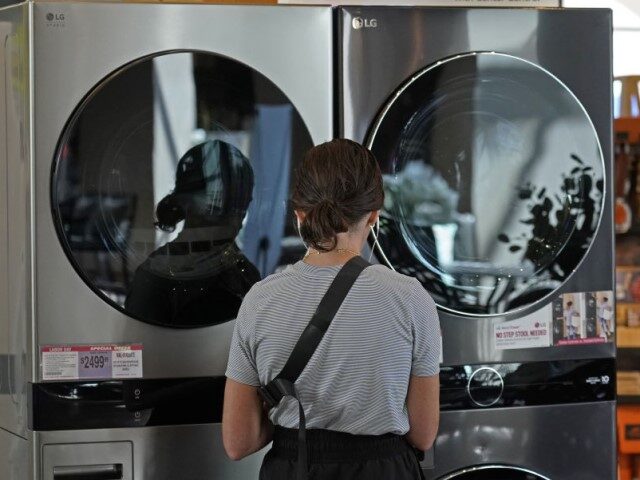Between 2013 and 2023, Americans’ spending on home appliances jumped 53 percent. Adjusted for inflation, that’s an annual increase of $390 to $558. But the cost of appliances decreased by 12 percent during that same time.
How is that possible?
Well, as the Wall Street Journal explains, one “reason for the discrepancy between [higher] spending and [lower] prices is a higher rate of replacement[.]”
Over a mere two years, “Yelp users … requested 58% more quotes from thousands of appliance repair businesses last month than they did in January 2022.”
“We’re making things more complicated, they’re harder to fix and more expensive to fix,” one expert in appliance repair told the Journal. This means that when “a complicated machine fails, technicians say they have a much harder time figuring out what went wrong.” And when the problem is finally diagnosed, “consumers are often left with repairs that exceed half the cost of replacement, rendering the machine totaled. ”
We see this everywhere, not just with appliances. We see it with automobiles, electronics, and even our own homes.
Some of it concerns our fascination with gadgets, that desire for all the bells and whistles. But some of it is regulatory. When the federal government demands a level of energy efficiency, the only way to achieve that is with a bunch of technology. Now we’re burdened with “[h]igh-efficiency motors and compressors, too, are likely to be lighter-duty, since they’re tasked with drawing less energy.”
More:
Peel back the plastic on a modern refrigerator or washing machine and you’ll see a smattering of sensors and switches that its 10-year-old counterpart lacks. These extra components help ensure the appliance is using only the energy and water it needs for the job at hand, technicians say. With more parts, however, more tends to go wrong more quickly, they say.
Back in the early 80s, when I was in high school, I spent all 12 weeks of my summer vacation working and living on my grandparents’ small dairy farm. One day, I saw my grandmother put the toaster in the car. I asked her what she was doing. She said to get it repaired. Even back then, I was shocked. No one repaired toasters. We threw them away. She explained that the toaster was 40 years old and this $15 repair would ensure it lasted another 40 years, and that was a lot cheaper than replacing toasters every five years. That toaster is all metal, heavy as a dictionary, and engineered simply.
Hell, I remember once when the TV blew, my dad opened it up and tasked me with testing the tubes. There were about a dozen of them. The drugstore down the street had a tube tester next to a display with every replacement tube you could want.
When my wife and I first got together, I remember replacing a motor in a washing machine, a belt in a dryer, and a stove’s thermocoupler.
No real skill was involved because anyone with half a brain could open one of these things up and see how it worked.
Today? It’s all computer electronics. What the hell are you supposed to do with a “display?”
This is all by design. The American religion is now consumerism. We went from a country that made things to one that buys things. Instead of increasing our self-worth through family, faith, accomplishment, and friendships, we’ve bought into this insane idea that we should remain single, build meaningless relationships through social media, abort our children, and consume-consume-consume. For many of us, an appliance breakdown is less of a problem and more of an opportunity to experience that endorphin surge that comes with tapping Amazon’s “Buy Now” prompt.
How do I know that? Because I’m not immune to it. Not even close.
Another horrible result of this consumer self-worship is the loss of skilled trades. Instead of making a good living and experiencing the sense of meaning that comes from repairing appliances, TVs, vacuum cleaners, and toasters, our young men waste away stocking shelves and standing behind a cash register—pure emasculation.
Get a FREE FREE FREE autographed bookplate if you purchase John Nolte’s debut novel, Borrowed Time (Bombardier Books).
“Though this book cannot fairly be categorized as Christian fiction, it expresses Christian themes as surely as if it were, and more effectively. I marvel at Nolte’s creative imagination and his facility for storytelling.” — David Limbaugh
After your purchase, email JJMNOLTE at HOTMAIL dot COM with your address and any personalization requests.

COMMENTS
Please let us know if you're having issues with commenting.